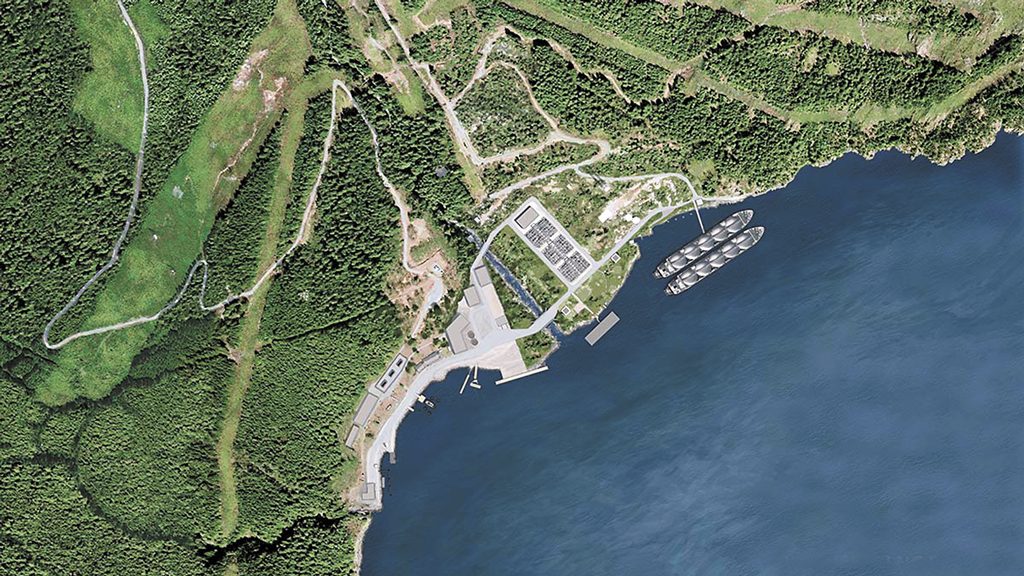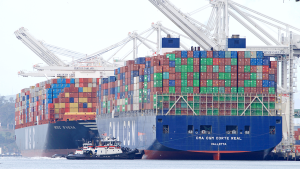A government ruling is facing backlash in both the construction and liquified natural gas (LNG) industries.
Earlier in the year, the Canadian International Trade Tribunal (CITT) issued a ruling that the “dumping” of fabricated industrial steel components originating from China, Korea and Spain could harm or threaten to cause harm to the domestic steel industry.
Under the ruling, duties on these components from the three countries will remain in force for the next five years.
Independent Contractors and Businesses Association (ICBA) president Chris Gardner said Canadian steel companies cannot produce the components singled out by the CITT and that enforcing the ruling could do serious damage to B.C.’s LNG industry.
“With LNG Canada and Woodfibre LNG, these tariffs might add hundreds of millions in costs,” Gardner said.
“Both projects are getting close to approval in 2018 and these tariffs make us less competitive.”
B.C. LNG Alliance president David Keane went further, calling the decision “wrong.”
“They made the decision without considering the impact on LNG. The Canadian steel industry has already said they can’t build these modules, which weigh in excess of 250 tonnes,” Keane said. “This is not rebar or other steel that can be made in Canada.”
Even if these modules could be produced in Canada, Keane noted, their size, weight and complexity would preclude moving them across the country to British Columbia for use with LNG projects.
“Even if you could build these components in a yard in Edmonton, you couldn’t transport them. They need to come by boat to the B.C. coast,” he said.
“It will be a loss of jobs, opportunities and a chance to add to a new industry in B.C.,” Gardner added. “It’s going to have a long-term negative impact on our long-term economic prosperity.”
In addition, Keane said, other projects in Canada such as the Bear Head and Goldboro LNG projects in Nova Scotia could also be harmed by the ruling.
“There could be a substantial impact across the country,” he stated, adding if B.C. LNG projects were to go forward, the economic benefits would not be restricted to the province.
While complex steel components for LNG can’t and won’t be built in Canada, he said, “there is a substantial amount that can be built in Canada and onsite, such as wells and pipelines.”
Other nations are going forward with LNG projects, Gardner noted.
“Our competitors globally are moving forward with LNG and their citizens are benefiting,” he said.
LNG Canada has filed an appeal to the appellate court, Keane said, and letters of support have been issued by the ICBA, the BC Chamber of Commerce, the Business Council of British Columbia and other organizations.
“We think the federal government will recognize allowing these components is not going to harm the steel industry, and that projects going forward will benefit steel and other industries,” Keane added.
“We trust the federal government will make the right decision.”
The Canadian Institute of Steel Construction (CISC) indicated support for the ruling when it was announced in May, stating in a news release that it led a coalition of fabricated industrial steel component manufacturers in filing a complaint with the Canada Border Services Agency (CBSA) in April 2017.
The news release also stated that the agency found “imports from the three countries were being dumped at margins of up to 45.8 per cent and imports from China were also subsidized at margins up to 70 per cent.”
“This finding means that our members will have an opportunity to compete fairly to supply Canadian industrial facilities with steel that is fabricated in Canada. It will have a positive impact on our members across Canada, their employees, and their employees’ families,” said CISC president Ed Whalen previously in the May statement.
The Journal of Commerce contacted the CISC for a statement on the ruling and the capability of the Canadian steel industry to produce the complex steel components in question, but the association declined to comment.











Recent Comments
comments for this post are closed